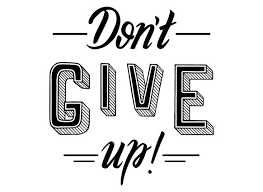Goal setting is a thoughtful and challenging process and the journey to success can be long and difficult. Attainment through trial and error, personal deliberations and a whole lot of hard work deserves recognition. Even if only by yourself.
This is the fun part of setting goals. It is time to celebrate that you did it this time. You followed the strategies;
- You identified goals that aligned with your values and the important areas of your life.
- You used tools such as Vision boards and active questions to focus your goals and get a future image of what to expect.
- You applied the SMART goal strategies to keep you realistic and the goal manageable and attainable.
- You set time lines that you could reach and asked yourself clear questions about these strategies.
- You defined the goals in terms of effort or achievement that helped you mentally prepare for what you needed to do.
- Most importantly you recognised old habits that could have derailed your goals and sought help from colleagues, friends, family and professionals to stop you self-sabotaging your efforts.
So how do you celebrate reaching a goal?
- Take a moment to process your success. No matter how small or big your goal was it is a statement of your ability to master the new, to
 take on change and win and to grow as a human being. Well done. A personal pat on the back from yourself is very acceptable in this moment.
take on change and win and to grow as a human being. Well done. A personal pat on the back from yourself is very acceptable in this moment. - Let others know. You can be happy and humble at the same time. Tell those who will appreciate your success and avoid the mistake of telling people who will not be encouraged by, inspired by and joyous by your success.
- Take a well-earned break from goal setting, even if it is for only one day. This is important if your own goal has stages to it. Take time out to enjoy reaching each of the goal. Then get back in to focus tomorrow.
- Reflect on your vision board and journal on how you did it. Make notes on the tricks and strategies that helped you through. Take notes on the habits that delayed or helped you procrastinate along the road. These will come in very handy next time.
- Put up a little ‘good on you’ sign somewhere that you can see daily, just to keep that positive energy alive for a while. It is good for the brain to see visual reinforces of doing well, even after the event (think trophies for the mind).
- Sleep. Kick back and reward yourself with a healthy treat. A bit of self-love won’t go astray.
- Don’t forget to thank all those who helped you on your way, kept you focused and on task while you battled life to get to your goal.
- Give yourself time and take it all in – the success, the sense of accomplishment. Once you are settled, recognize yourself for having mastered something novel. You were able to adapt to a change and grow from it, so remember that self-appreciation is the first celebration.
- If you have a team, then you can do the following to celebrate a collective success:
Recognise them publicly. Give away thoughtful gifts. If possible, give them an extra day off. Plan a team outing for drinks and food
Last of all share how you did it with others that are struggling to achieve their goals. We are all part of a bigger picture and what goes around comes around. Helping others to achieve the success you managed is a great gift to pass forward in to the world.
And just to keep you motivated here are some inspirational quotes to get you geared up for you next goal.

 Analyse and search the origins of distractions in your life, and take healthy steps to eliminate them (maybe once and for all?). This may include excessive use of electronic gadgets, socialising, watching television etc. By getting rid of such distractions, you can gain so much more free time to pursue your goals rather than wasting time on things that don’t serve any meaningful purpose in your life. Distractions are time snatches, stealing hours and minutes away from your schedule. Wasting your free time. So, it’s time you take some responsibility and eliminate them.
Analyse and search the origins of distractions in your life, and take healthy steps to eliminate them (maybe once and for all?). This may include excessive use of electronic gadgets, socialising, watching television etc. By getting rid of such distractions, you can gain so much more free time to pursue your goals rather than wasting time on things that don’t serve any meaningful purpose in your life. Distractions are time snatches, stealing hours and minutes away from your schedule. Wasting your free time. So, it’s time you take some responsibility and eliminate them. And of course the tried and true acronym for goal setting and achieving is the SMART goal strategy. SMART GOALS means, ensure your goals are:
And of course the tried and true acronym for goal setting and achieving is the SMART goal strategy. SMART GOALS means, ensure your goals are:
 away and wait until the last minute to do it. The more time you spend in thinking that you will do it, is more time you are wasting. Do your work today and open the door to goal success faster.
away and wait until the last minute to do it. The more time you spend in thinking that you will do it, is more time you are wasting. Do your work today and open the door to goal success faster. How did they succeed? They anticipated their failures and converted them into stepping stones towards progress. You shouldn’t allow failure to dampen your spirits, rather motivate yourself to learn from it and work harder towards achieving your goals.
How did they succeed? They anticipated their failures and converted them into stepping stones towards progress. You shouldn’t allow failure to dampen your spirits, rather motivate yourself to learn from it and work harder towards achieving your goals. Don’t be afraid of risks – Risks are what differentiates between the successful and the mundane. To reach your goals, you need to stand out with your actions and that requires risk-taking. Don’t be afraid and push through with educated risks. You are doing something that hasn’t been tried before, making your efforts a novelty.
Don’t be afraid of risks – Risks are what differentiates between the successful and the mundane. To reach your goals, you need to stand out with your actions and that requires risk-taking. Don’t be afraid and push through with educated risks. You are doing something that hasn’t been tried before, making your efforts a novelty.
 #5: Do a self assessment.
#5: Do a self assessment. comfortable straight away. Give your self time and compassion to adjust and accept the new reality.
comfortable straight away. Give your self time and compassion to adjust and accept the new reality.
